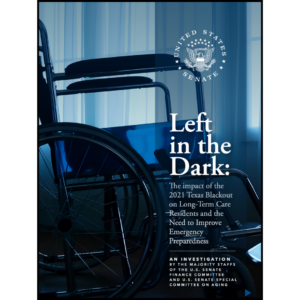HHS waives Medicare, Medicaid requirements for NYC facilities affected by hurricane
Because of the various and continuing health risks that will be faced before New York City returns to normal, Health and Human Services (HHS) Secretary Kathleen Sebelius in a news release today declared a public health emergency for the city. This declaration allows HHS to waive or modify certain Medicare, Medicaid and Children’s Health Insurance Program requirements.
In addition, the release says that “HHS may permit affected healthcare facilities in New York to adjust certain operating procedures temporarily and continue to be reimbursed under Medicare, Medicaid and CHIP.” This would enable qualified residents covered by Medicare to be admitted to nursing homes, waiving the three-day hospitalization requirement.
Standing water from rain, storm surges and power outages left in the wake of Hurricane Sandy pose serious risks of injury and general health.
Stagnant water can pose a variety of physical and bacterial hazards, especially in New York where tons of raw sewage flowed into the Hudson River from overwhelmed treatment plants. The flood waters may carry E. coli bacteria. Boiling water is recommended.
Joan Rose, the Homer Nowlin Chair in Water Research at the University of Michigan said in an article in the National Geographic Daily News, that untreated sewage may introduce bacteria, viruses and parasites that can trigger a variety of illnesses. According to Rose, the cool temperatures [in New York City] enable these pathogens to survive for months.
People are cautioned not to walk through standing water because of downed power lines that could electrify the water and hidden debris. An open cut can allow these pathogens to enter the body.
HHS offers more information on protecting health after Hurricane Sandy.

Sandra Hoban was on I Advance Senior Care / Long-Term Living’s editorial staff for 17 years. She is one of the country’s longest-serving senior care journalists. Before joining Long-Term Living, she was a member of the promotions department at Advanstar Communications. In addition to her editorial experience, Sandi has served past roles in print and broadcast advertising as a traffic and talent coordinator.
Related Articles
Topics: Disaster Preparedness , Leadership , Operations , Risk Management











